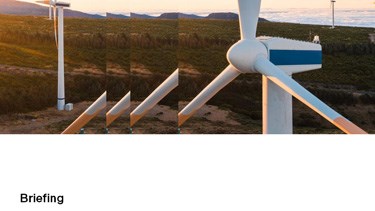European Commission publishes draft Implementing Regulation on the Foreign Subsidies Regulation
On 6 February 2023, the European Commission (EC) published its draft Implementing Regulation (“Draft IR”) on the Foreign Subsidies Regulation (“FSR”). The FSR is the legal basis for the EC to control the grant of subsidies by countries outside the EU (see here). The Draft IR seeks to clarify practical and procedural aspects of the application of the FSR and provides important guidance on the notifications of M&A transactions.
What does the Draft IR cover?
To recap, the FSR requires companies to notify transactions if certain thresholds regarding turnover and third-country financial contributions are met (see here). The Draft IR further explains procedural elements such as (i) form and timing of notifications, (ii) investigative powers of the EC, (iii) submission of commitments by the parties, (iv) right of parties to participate in investigations, (v) treatment of confidential information, (vi) access to file and (vii) time limits. The Draft IR has two Annexes (Annex 1 for notifications concerning M&A transactions and Annex 2 for public procurement procedures) with standard forms for information that companies need to provide.
What are the key takeaways for M&A transactions?
- Waiver requests can reduce information required
Like in merger control notifications, companies are encouraged to contact the EC prior to formal notification (pre-notification contact) when questions on the scope of the required information can be discussed. Importantly, companies can request the EC to dispense with the obligation to provide certain information (waiver request) where the information in question is not available or not relevant for the EC’s assessment. In practice, parties will have to explain why the information is not available or not necessary for the EC to find that a given financial contribution is not a subsidy or that a presumed subsidy would not be able to improve the competitive position of a company and negatively affect competition in the EU.
- No identification of “de minimis“ financial contributions
The Draft IR sets out a welcome de minimis threshold below which financial contributions will not have to be disclosed in a notification. Annex 1 contains a standard table listing in detail which information must be provided to the EC for each financial contribution. The obvious challenge for companies will be to provide the information on all financial contributions received from non-EU countries. The Draft IR offers some assistance in this regard: A financial contribution only has to be identified if the individual amount of the specific financial contribution equals or exceeds €200,000 and if the total amount of all contributions per third country per year equals or exceeds €4 million.
- Overall burdensome information and document production requirements
Nevertheless, the Draft IR provides extensive document production duties in relation to strategic, legal, economic or tax-related due diligence documents. The information on structured bidding processes, for which extensive information is requested, will often not be easily available to companies. Further, companies will need to explain the “different business lines” of activities of the parties – a concept so far unknown in formal EU merger control proceedings. In addition, companies will still need to keep a record of de minimis contributions. These are not only relevant for reaching the notification thresholds, but in the case of staggered transactions, the €4 million cap might not apply to each subsequent transaction. Finally, the Draft IR still requires companies to elaborate in detail on financial contributions above the de minimis threshold in a standard table. For certain categories of financial contributions, information on classification as a subsidy is required in addition, thereby further increasing the burden on internal bookkeeping.
What happens next?
Companies have until 6 March 2023 to comment on the Draft IR. On the basis of the draft and stakeholders’ input, the EC will then adopt a final version of the IR in the second quarter of 2023, in time for the start of the FSR’ application on 12 July 2023. In view of the high administrative hurdles envisaged by the EC, companies are strongly encouraged to contribute their views on the Draft IR.
Well
informed
Subscribe to our newsletter now to stay up to date on the latest developments.
Subscribe now










